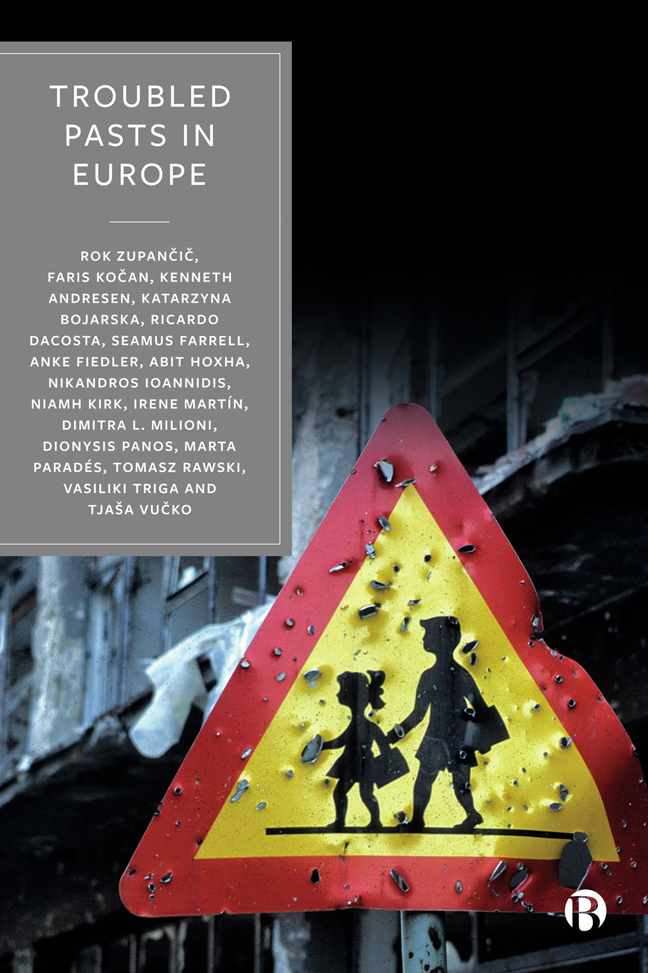 Troubled Pasts in Europe
Troubled Pasts in Europe 10 - The European Union
Published online by Cambridge University Press: 25 January 2024
Summary
Introduction
The aim of this chapter is to prepare a concrete roadmap for the EU in its attempts to find strategies for overcoming troubled pasts in European countries in four different domains (history, media, politics, arts and culture). By doing this, the following roadmap attempts to answer what the EU institutions can do to help European countries, both members and aspiring candidates for the membership, to foster the processes that would lead to the overcoming of troubled pasts in respective countries.
But first, a quick overview of the EU integration processes since the end of the Second World War until the present day, explained from the perspective of the ‘peace ideas’ that have been underpinning integration efforts in different times, is needed to understand how the EU developed as an actor that aims at helping the countries to overcome their troubled pasts. If the European Community (EC) was, especially in the first decades after the Second World War, ‘security-oriented’ primarily inwards, the institution gradually evolved into an actor with stabilizing aspirations, which aims at projecting peace outside its borders.
We begin in 2012, with one of the most remarkable events for the EU as a peace actor. This year, the Norwegian Nobel Committee awarded the Nobel Peace Prize to the EU, justifying it with the following formulation: ‘The EU's most important result is the successful struggle for peace and reconciliation, democracy, and human rights. The stabilizing part played by the EU has helped to transform most of Europe from a continent of war to a continent of peace’ (Birchfield et al, 2017, p 3).
This prize – although widely contested, because the EU has still been lacking effective capabilities to build peace in conflict societies – was a result of decades-long endeavours. The ideational basis of European reconstruction after the Second World War was building such international order, which would reduce or even fully nullify the possibility that the European states would again resort to the use of armed force for ‘resolving’ their disputes. The founding fathers of the European integration believed that this aim could be reached by, first, fostering cooperation among European states, and second, by intertwining them economically to the greatest possible extent.
- Type
- Chapter
- Information
- Troubled Pasts in EuropeStrategies and Recommendations for Overcoming Challenging Historic Legacies, pp. 143 - 163Publisher: Bristol University PressPrint publication year: 2023
